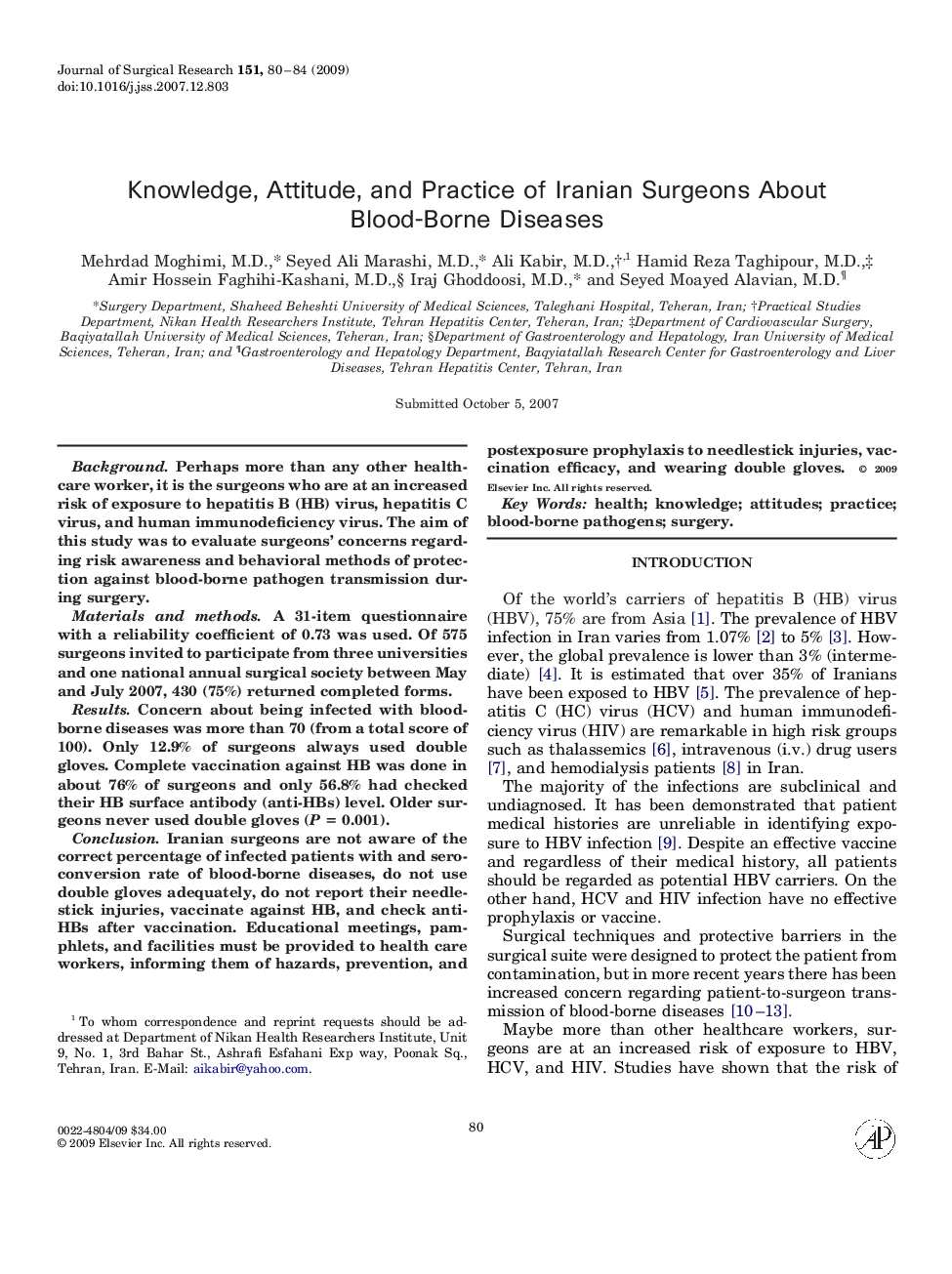| Article ID | Journal | Published Year | Pages | File Type |
|---|---|---|---|---|
| 4303853 | Journal of Surgical Research | 2009 | 5 Pages |
BackgroundPerhaps more than any other healthcare worker, it is the surgeons who are at an increased risk of exposure to hepatitis B (HB) virus, hepatitis C virus, and human immunodeficiency virus. The aim of this study was to evaluate surgeons' concerns regarding risk awareness and behavioral methods of protection against blood-borne pathogen transmission during surgery.Materials and methodsA 31-item questionnaire with a reliability coefficient of 0.73 was used. Of 575 surgeons invited to participate from three universities and one national annual surgical society between May and July 2007, 430 (75%) returned completed forms.ResultsConcern about being infected with blood-borne diseases was more than 70 (from a total score of 100). Only 12.9% of surgeons always used double gloves. Complete vaccination against HB was done in about 76% of surgeons and only 56.8% had checked their HB surface antibody (anti-HBs) level. Older surgeons never used double gloves (P = 0.001).ConclusionIranian surgeons are not aware of the correct percentage of infected patients with and seroconversion rate of blood-borne diseases, do not use double gloves adequately, do not report their needlestick injuries, vaccinate against HB, and check anti-HBs after vaccination. Educational meetings, pamphlets, and facilities must be provided to health care workers, informing them of hazards, prevention, and postexposure prophylaxis to needlestick injuries, vaccination efficacy, and wearing double gloves.
